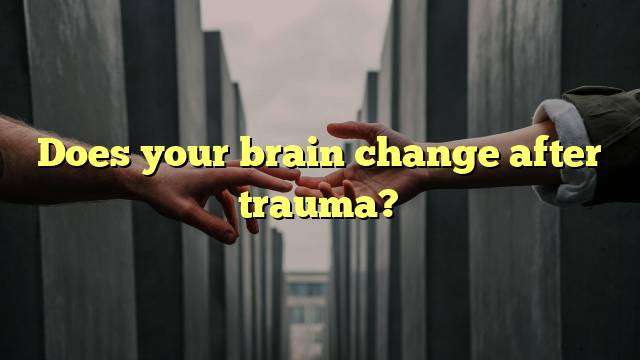Does Your Brain Change After Trauma?
Trauma has a profound effect on the human brain, altering its physical structure and altering its chemical balance. It can be difficult to understand the changes that occur in the brain after trauma, but recent scientific research has helped to shed light on this complex and fascinating topic.
The Effects of Trauma on the Brain
When someone experiences a traumatic event, their brain goes through a number of changes to protect them from the psychological and physical harm that the event can cause. The brain’s response is divided into three stages: the acute stage, the reorganization stage, and the post-trauma stage.
The Acute Stage
During the acute stage, the brain is on high alert and is preparing to protect the individual from the trauma. During this stage, the brain is flooded with hormones and neurotransmitters such as adrenaline, cortisol, and norepinephrine. These hormones and neurotransmitters are responsible for the body’s “fight or flight” response, which is the body’s natural way of protecting itself from danger.
The Reorganization Stage
After the acute stage, the brain begins to reorganize itself in order to adapt to the new environment. During this stage, the brain is attempting to create a new normal. This involves a restructuring of neural networks, which is the process of creating new connections between neurons in order to form new pathways and memories.
The Post-Trauma Stage
After the reorganization stage, the brain enters the post-trauma stage. This is the stage in which the individual begins to process and cope with the trauma they experienced. During this stage, the brain is attempting to restore balance and stability to the individual. It is also during this stage that individuals may experience symptoms of post-traumatic stress disorder (PTSD).
The Impact of Trauma on the Brain
Research in neuroscience has revealed that trauma can have a lasting impact on the structure and functioning of the brain. For individuals who have experienced trauma, the brain’s neural networks may be altered, which can lead to a variety of physical and psychological symptoms.
Physical Symptoms
Research has linked trauma to a number of physical symptoms, including headaches, fatigue, sleep disturbances, and changes in appetite. Trauma can also affect the immune system, leaving individuals more vulnerable to illnesses and infections.
Psychological Symptoms
The psychological effects of trauma can be just as damaging as the physical effects. Trauma can cause individuals to experience anxiety, depression, and post-traumatic stress disorder (PTSD). PTSD is a condition that is characterized by intrusive memories, nightmares, flashbacks, and intense emotional distress.
Conclusion
Trauma has a profound effect on the human brain and can cause lasting changes in its structure and functioning. Trauma can lead to physical symptoms such as headaches and fatigue, as well as psychological symptoms such as anxiety and depression. It is important to remember that everyone responds to trauma differently, and it is important to seek professional help if you or someone you know is struggling with the effects of trauma.



